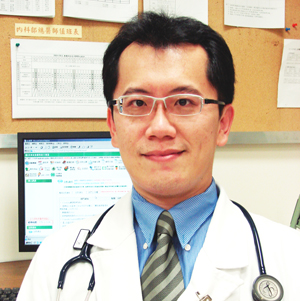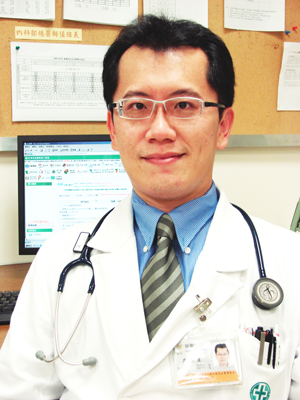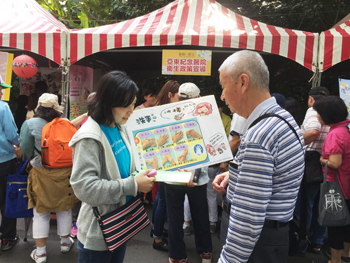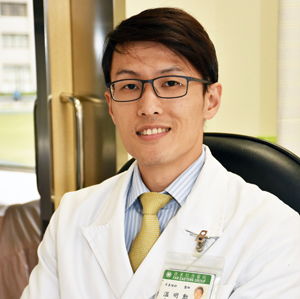03.2020 Life Guide
Serious virus infection - novel coronavirus
Far Eastern Memorial Hospital deputy section chief, infection control center / Liao Junxing section chief


Coronavirus was found in 1960s. There are two types of coronavirus that can cause human upper respiratory tract infection, human coronavirus 229E and human coronavirus OC43. The mortality rate published in the literature is very low, rarely leading to serious illness. However, the SARS CoV (severe acute respiratory syndrome coronavirus) outbreak in 2003 is different from the previous virus, which is easy to cause pneumonia, and the mortality rate is about 10%. The world's first case of SARS occurred in Guangdong, China in November 2002. However, it did not cause a global pandemic at the beginning. Until February 2003, a patient from Guangdong, China transmitted SARS to 12 other people in hotels, and then the coronavirus spread to many countries, including Taiwan, in just a few months. Finally, there were 346 cases of infection and 37 deaths in Taiwan. Thanks to global efforts, the pandemic ended in July 2003.
However, another serious coronavirus infection was found in 2012. This time, it was found in the Middle East countries. The discovery process was similar to that of SARS. First, some patients got severe pneumonia of unknown cause, and then it was found that it was caused by a new type of coronavirus (mers cov, The World Health Organization (who) also issued a global warning in September 2012. So far, there have been more than 2000 cases in the world. Mers originated from bats and spread to human beings through camels. Its mortality rate is higher than that of SARS (more than 30%). In the same way as SARS, mers can also spread in hospitals, causing other patients and medical staff to be infected. In 2015, a hospital in South Korea infected more than 100 patients with mers virus after returning from the Middle East, resulting in more than 30 deaths. Therefore, the Taiwan disease control agency has always asked medical colleagues to make detailed inquiries about tourism history, occupational history, contact history and clustering history, and do a good job in monitoring and prevention of nosocomial infection.
China's Wuhan China novel coronavirus was publicly identified as a new coronavirus in January 2020. The number of cases of pneumonia in Wuhan began to increase in January 2020. When the hospitals in Taiwan were still conducting regular exercises for MERS, there was a large increase in the number of cases in January 2020. The official name of the virus was 2019 novel in January 12th. Coronavirus (named covid-19 on February 12). On January 13, Thailand found cases of overseas immigration, and Taiwan also found the first case of overseas immigration on January 21. Since then, the number of global cases has rapidly accumulated. As of February 18, there have been more than 71400 confirmed cases worldwide, with more than 1700 deaths, exceeding the record of SARS in that year.

To confirm whether covid-19 is infected or not, reverse transcription PCR (reverse transcription PCR) is needed to detect whether there is virus in the respiratory tract. From the beginning, only UNDCP provided relevant tests. By February, more than 10 medical institutions could carry out this test. There was no special treatment for the infection of coronavirus, but the patient's own immunity and hospital's support therapy were needed to fight against the virus. However, it is heartening to note that after successful cultivation of the virus in several countries, many components have been found to be able to effectively inhibit the virus in vitro tests, and a few cases have reported the therapeutic effect of these drugs. Currently, research on whether these drugs can really reduce the death of patients is under way.
Isolation of suspected / confirmed patients, complete protection, more hand washing, and accurate cleaning and disinfection are standard practices for controlling all infectious diseases. Coronavirus is mainly transmitted through droplets, or directly or indirectly contact with the secretions of infected people. Therefore, in the absence of special conditions, more hand washing and wearing surgical masks in densely populated areas are the best ways to prevent. Before community infection, patients with clinical symptoms and tourism history will receive chest X-ray examination to assess whether there is pneumonia. Once meeting the definition of notification, the patients will be placed in a single negative pressure isolation room. If there is no negative pressure isolation room, the patients will be placed in a single room with bathroom facilities. The standard of protection for caregivers is long sleeve waterproof isolation clothing, non sterile surgical gloves, N95 masks, and goggles or masks. If there is community infection, the reference value of tourism history is not so high. At this time, the contact history and clustering phenomenon are more important. As long as there is clustering, no matter in the family, workplace or hospital, we should be careful of infectious diseases. Before the epidemic situation in China is under control, it is better to avoid going to China. People who have recently visited China should take the initiative to inform the public health personnel for follow-up inspection and the medical staff of their travel history if they have discomfort.
With the progress of science and technology, the detection and understanding of infectious diseases in the epidemic prevention system has made great progress. For covid-19, the virus has been identified in a short time, and there is also a direction for treatment. However, in the face of all infectious diseases, attention to hand hygiene and cough etiquette is still the most important. In addition, the novel coronavirus can be controlled smoothly by improving the concept of public health and the transparency of epidemic situation.
Tips: how to implement "wash hands frequently"?
It is one of the most important public health issues for the World Health Organization (who) to wash hands with fat fingers. To form the habit of washing hands frequently can prevent diarrhea, respiratory infectious diseases, intestinal parasites and other diseases. Please remember the following washing time——
Before eating: when eating, it's hard to avoid touching the food with both hands, so it's easy to bring the germs into the mouth.
* before touching, teasing and caring for infants and children: the immune system of infants and children is not yet mature, and they are easy to get sick due to infection. Adults or children at home may bring back pathogens even if they have no symptoms. Therefore, adults or children should change clothes and wash their hands after returning home. Infants and children's carers should wash their hands before cuddling, kissing or feeding infants and children.
Before and after seeing a doctor: no matter the patient or accompanying family members, they should wash their hands before entering the hospital to avoid bringing the germs into the hospital and protect other patients with weak resistance. In addition, in the medical environment of the hospital, it is easy to directly or indirectly contact with the germs, so wash your hands after seeing the doctor and before leaving the hospital to protect yourself and avoid taking the germs home.
After going to the toilet: during the process of going to the toilet, the hands will inevitably contact with urine or feces. Even when turning the toilet cover, opening and closing the door, flushing and other actions, the hands may be infected with germs. Therefore, wash hands after going to the toilet.
* after blowing your nose: at ordinary times, you should avoid touching your mouth and nose with your hands to avoid eating germs, especially when you have respiratory symptoms (such as runny nose). Nasal secretions contain a lot of germs, that is, you should use handkerchief, toilet paper, etc. to blow your nose. Your hands may still be contaminated with secretions or germs. You must wash your hands to avoid the spread of germs.
(refer to the special area for infectious diseases and epidemic prevention of the disease control department of the Ministry of health and welfare for the above information)




















